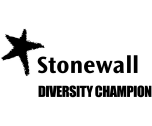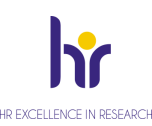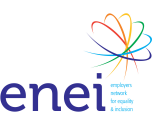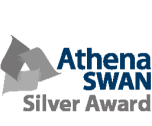INTRODUCTION
In view of the growing importance of English as a tool for global
communication and the consequent emphasis on training students to
acquire language skills, the syllabus of English has been designed to
develop linguistic, communicative and critical thinking competencies of
Engineering students.
In English classes, the focus should be on the skills development in the
areas of vocabulary, grammar, reading and writing. For this, the
teachers should use the prescribed text for detailed study. The students
should be encouraged to read the texts leading to reading comprehension
and different passages may be given for practice in the class. The time
should be utilized for working out the exercises given after each
excerpt, and also for supplementing the exercises with authentic
materials of a similar kind, for example, newspaper articles,
advertisements, promotional material etc. The focus in this syllabus is
on skill development, fostering ideas and practice of language skills in
various contexts and cultures.
Learning Objectives: The course will help to
- Improve the language proficiency of students in English with an emphasis on Vocabulary, Grammar, Reading and Writing skills.
- Equip students to study academic subjects more effectively and
critically using the theoretical and practical components of English
syllabus.
- Develop study skills and communication skills in formal and informal situations.
Course Outcomes: Students should be able to
- Use English Language effectively in spoken and written forms.
- Comprehend the given texts and respond appropriately.
- Communicate confidently in various contexts and different cultures.
- Acquire basic proficiency in English including reading and listening comprehension, writing and speaking skills.
SYLLABUS
UNIT –I : ‘The Raman Effect’ from the prescribed textbook ‘English for Engineers’ published by Cambridge University Press.
Vocabulary Building: The Concept of Word Formation –The Use of Prefixes and Suffixes.
Grammar: Identifying Common Errors in Writing with Reference to Articles and Prepositions.
Reading: Reading and Its Importance- Techniques for Effective Reading.
Basic Writing Skills: Sentence Structures -Use of Phrases and Clauses in
Sentences Importance of Proper Punctuation- Techniques for writing
precisely – Paragraph writing – Types, Structures and Features of a
Paragraph – Creating Coherence-Organizing Principles of Paragraphs in
Documents.
UNIT –II : ‘Ancient Architecture in India’ from the prescribed textbook ‘English for Engineers’
published by Cambridge University Press.
Vocabulary: Synonyms and Antonyms.
Grammar: Identifying Common Errors in Writing with Reference to Noun-pronoun Agreement and Subject-verb Agreement.
Reading: Improving Comprehension Skills – Techniques for Good Comprehension
Writing: Format of a Formal Letter-Writing Formal Letters E.g.., Letter
of Complaint, Letter of Requisition, Job Application with Resume.
UNIT –III : ‘Blue Jeans’ from the prescribed textbook ‘English for Engineers’ published by
Cambridge University Press.
Vocabulary: Acquaintance with Prefixes and Suffixes from Foreign
Languages in English to form Derivatives-Words from Foreign Languages
and their Use in English.
Grammar: Identifying Common Errors in Writing with Reference to Misplaced Modifiers and Tenses.
Reading: Sub-skills of Reading- Skimming and Scanning
Writing: Nature and Style of Sensible Writing- Defining- Describing
Objects, Places and Events – Classifying- Providing Examples or Evidence
UNIT –IV : ‘What Should You Be Eating’ from the prescribed textbook ‘English for Engineers’ published by Cambridge University Press.
Vocabulary: Standard Abbreviations in English
Grammar: Redundancies and Clichés in Oral and Written Communication.
Reading: Comprehension- Intensive Reading and Extensive Reading
Writing: Writing Practices–Writing Introduction and Conclusion – Essay Writing-Précis Writing.
UNIT –V : ‘How a Chinese Billionaire Built Her
Fortune’ from the prescribed textbook ‘English for Engineers’ published
by Cambridge University Press.
Vocabulary: Technical Vocabulary and their usage
Grammar: Common Errors in English
Reading: Reading Comprehension-Exercises for Practice
Writing: Technical Reports- Introduction – Characteristics of a Report – Categories of Reports
Formats- Structure of Reports (Manuscript Format) -Types of Reports – Writing aReport.
Prescribed Textbook:
- Sudarshana, N.P. and Savitha, C. (2018). English for Engineers. Cambridge University Press.
References:
- Swan, M. (2016). Practical English Usage. Oxford University Press.
- Kumar, S and Lata, P.(2018). Communication Skills. Oxford University Press.
- Wood, F.T. (2007).Remedial English Grammar. Macmillan.
- Zinsser, William. (2001). On Writing Well. Harper Resource Book.
- Hamp-Lyons, L. (2006).Study Writing. Cambridge University Press.
- Exercises in Spoken English. Parts I –III. CIEFL, Hyderabad. Oxford University Press.


 R18 B.TECH AERONAUTICAL ENGG. II Year Syllabus
R18 B.TECH AERONAUTICAL ENGG. II Year Syllabus







